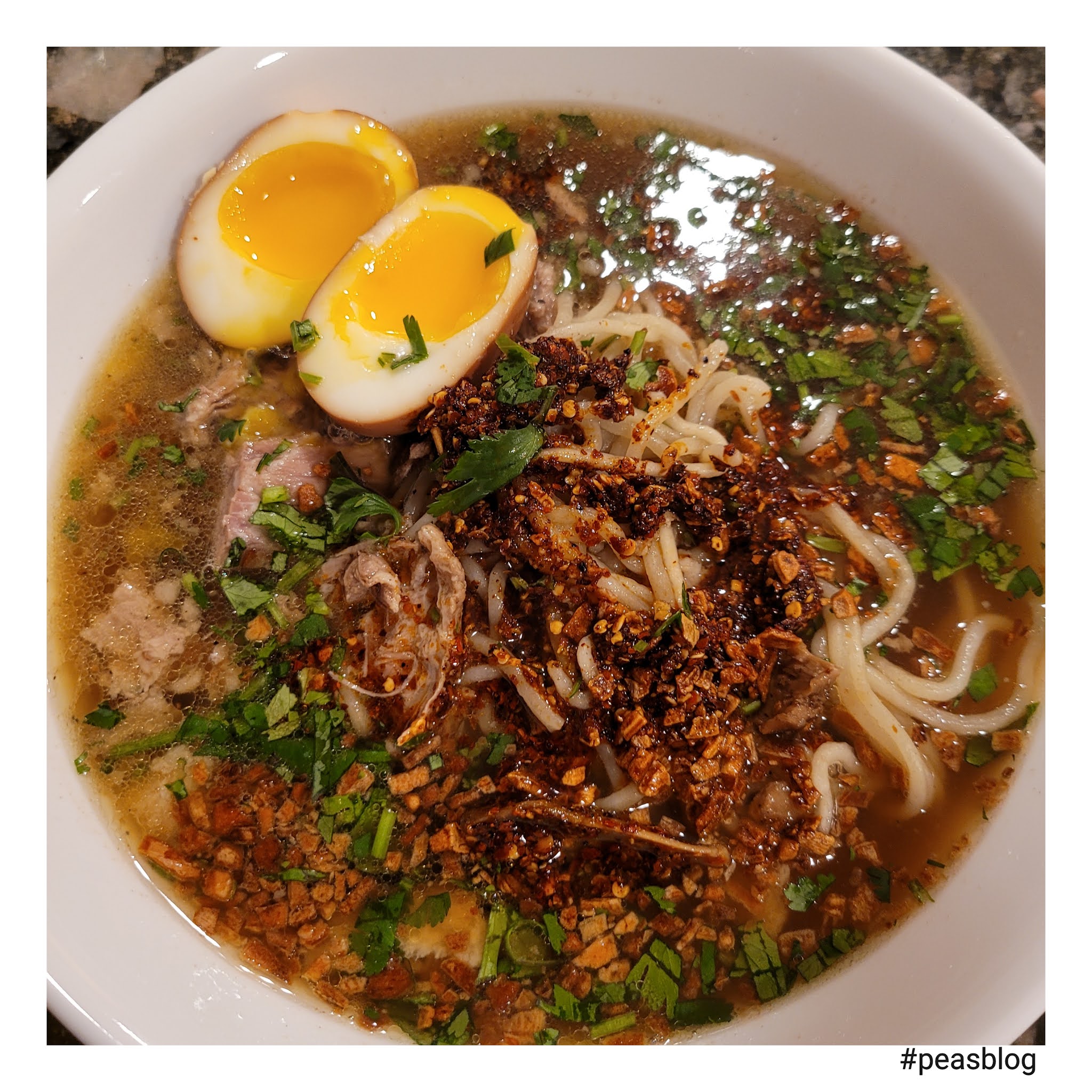Virus In Ramen Noodles: Understanding The Risks And Safety Measures
In recent times, the safety of food products has come under scrutiny, with reports of various contaminants, including viruses, affecting popular items like ramen noodles. This article aims to delve into the topic of "virus in ramen noodles," exploring the potential health risks, safety measures, and what consumers should know. Ramen noodles, a staple in many households around the world, have faced challenges in maintaining safety standards amid rising concerns about foodborne illnesses.
As consumers, it is essential to be informed about what we eat and the potential hazards associated with it. The rising cases of viruses in food products have prompted health authorities to issue warnings and guidelines for safe consumption. In this article, we will dissect the implications of viruses in ramen noodles and how they can affect health.
We will also highlight preventive measures, the role of regulatory bodies, and tips for consumers to ensure the safety of their food. By the end of this article, you will gain a comprehensive understanding of the topic and be better equipped to make informed decisions about your food choices.
Table of Contents
- What is Ramen Noodles?
- Viruses in Food: An Overview
- Health Risks Associated with Viruses in Ramen Noodles
- Case Studies of Virus Contamination
- Safety Measures for Consumers
- Role of Regulatory Bodies in Food Safety
- What Consumers Can Do
- Conclusion
What is Ramen Noodles?
Ramen noodles are a versatile and convenient food product that originated in Japan. They come in various forms, including instant, fresh, and dried noodles. Typically made from wheat flour, water, salt, and an alkaline mineral water called kansui, ramen noodles are known for their distinct chewy texture and ability to absorb flavors.
Types of Ramen Noodles
- Instant Ramen: Pre-cooked and dried, these noodles are quick to prepare.
- Fresh Ramen: These noodles are non-dried and often found in refrigerated sections.
- Dried Ramen: These are dehydrated noodles that require longer cooking times.
Viruses in Food: An Overview
Foodborne viruses are a significant public health concern worldwide. They can be transmitted through contaminated food or water, and certain viruses can survive cooking processes, making them a continuous risk in various food products, including ramen noodles.
Common viruses that can contaminate food products include:
- Norovirus: Often linked to outbreaks in crowded settings, it can survive on surfaces and be transmitted through contaminated food.
- Hepatitis A: This virus can be spread through contaminated food, especially raw or undercooked items.
- Rotavirus: While commonly affecting children, it can also be transmitted through contaminated food and water.
Health Risks Associated with Viruses in Ramen Noodles
The presence of viruses in ramen noodles poses several health risks, particularly for vulnerable populations such as the elderly, young children, and individuals with weakened immune systems. Symptoms of foodborne viral infections can range from mild to severe and include:
- Nausea and vomiting
- Diarrhea
- Stomach cramps
- Fever and fatigue
Impact on Public Health
Foodborne illnesses caused by viruses result in millions of illnesses each year, leading to hospitalizations and, in severe cases, fatalities. Understanding the risks associated with consuming contaminated ramen noodles is crucial for public health awareness.
Case Studies of Virus Contamination
Several case studies highlight the risks of virus contamination in ramen noodles. In 2020, a significant outbreak of norovirus was traced back to a batch of instant ramen noodles produced in a facility with inadequate hygiene standards.
Example Cases
- A restaurant outbreak where several patrons fell ill after consuming ramen prepared with contaminated ingredients.
- Imported ramen products that tested positive for hepatitis A, leading to recalls and public health alerts.
Safety Measures for Consumers
To mitigate the risks associated with viruses in ramen noodles, consumers should follow several safety measures:
- Always check for recalls and food safety alerts regarding ramen products.
- Ensure proper cooking and handling of ramen noodles to kill potential viruses.
- Practice good hygiene, including washing hands before preparing food.
Cooking Tips
Proper cooking can significantly reduce the risk of viral contamination. Here are some tips:
- Cook noodles thoroughly in boiling water for at least 3-5 minutes.
- Avoid cross-contamination by using separate utensils for raw and cooked foods.
- Store ramen noodles in a cool, dry place to prevent contamination.
Role of Regulatory Bodies in Food Safety
Regulatory bodies play a crucial role in ensuring food safety. Agencies such as the Food and Drug Administration (FDA) and the Centers for Disease Control and Prevention (CDC) monitor food products, issue recalls, and provide guidelines for safe food handling.
Food Safety Regulations
These organizations enforce regulations that require manufacturers to adhere to safety standards, conduct regular inspections, and report any instances of contamination. Their efforts are vital in preventing outbreaks and protecting public health.
What Consumers Can Do
Consumers can take proactive steps to ensure their safety and the safety of their families when consuming ramen noodles:
- Stay informed about food safety news and trends.
- Participate in community awareness programs about foodborne illnesses.
- Share information with friends and family to promote safe eating habits.
Conclusion
In conclusion, understanding the risks associated with viruses in ramen noodles is essential for safeguarding health. By following safety measures, staying informed about food recalls, and practicing good hygiene, consumers can significantly reduce their risk of foodborne illnesses. As we continue to enjoy the convenience of ramen noodles, let us remain vigilant and prioritize safety in our food choices.
If you found this article informative, please leave a comment below, share it with others, or read more articles on our site about food safety and health tips.
Thank you for visiting, and we look forward to providing you with more valuable information in the future!
Exploring The Life And Legacy Of Desmond Doss: A True American Hero
Emily Mae Young: A Comprehensive Look Into Her Life And Career
Shawn Wayans: A Journey Through Comedy And Entertainment


